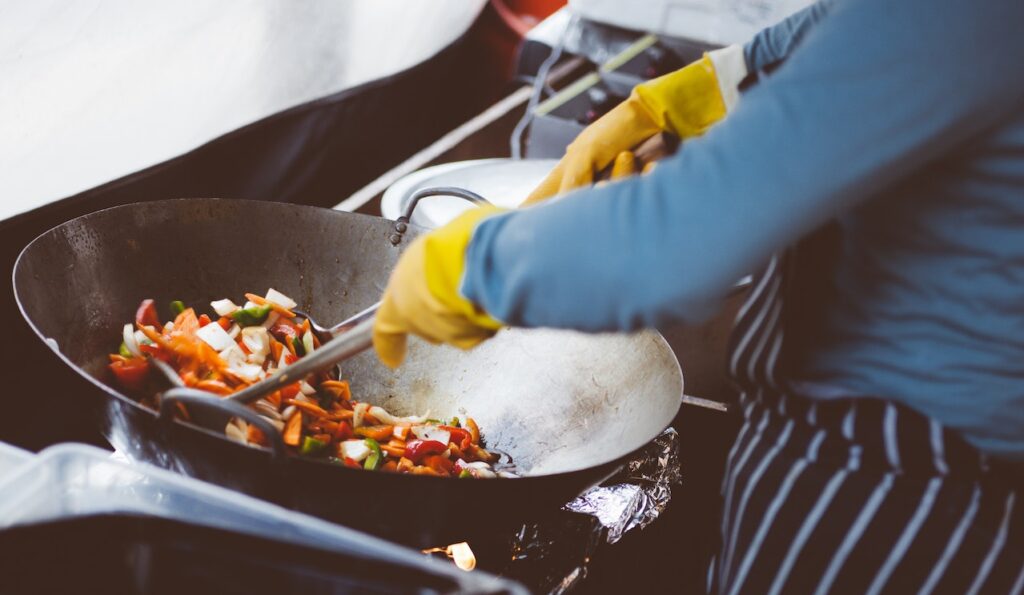Welcome to Spice Savvy Kitchen, your culinary destination for mastering the art of cooking. If you’re just starting your journey in the world of cooking, you’re in the right place. In this guide, we’ll explore essential cooking techniques for beginners, equipping you with the skills and knowledge needed to create delicious and satisfying dishes from scratch.
Why Mastering Cooking Basics Matters:
Cooking is both a science and an art, and mastering the basics is akin to building a strong foundation for any creative endeavor. Here’s why it’s crucial:
-
Versatility: Basic cooking techniques form the backbone of countless recipes. Once you grasp these skills, you can adapt them to prepare a wide range of dishes.
-
Control: Knowing how to handle basic techniques gives you control over flavor, texture, and presentation. You can tailor your dishes to your taste preferences.
-
Confidence: As a beginner, building competence in fundamental cooking methods boosts your confidence in the kitchen, making cooking a more enjoyable experience.
Essential Cooking Techniques for Beginners:
1. Knife Skills:
- Knife skills are the foundation of cooking. Proper knife handling, including chopping, dicing, and mincing, is essential for efficient meal preparation. A few key points to keep in mind:
- Knife Selection: Invest in a good-quality chef’s knife and a paring knife. A sharp knife is safer and makes cutting easier.
- Technique: Learn the proper grip and cutting techniques to prevent accidents and ensure uniform cuts.
- Safety: Always keep your fingers tucked in and use a claw-like hand position to protect your fingertips.
2. Sauteing:
- Sautéing is a quick cooking method that involves cooking ingredients rapidly in a hot pan with a small amount of oil or butter. It’s ideal for stir-fries and creating dishes with intense flavors. Key points:
- Heat Control: Use high heat to cook ingredients quickly while maintaining their texture and flavor.
- Uniformity: Cut ingredients into similar-sized pieces for even cooking.
- Stirring: Keep ingredients moving in the pan to prevent sticking and ensure even cooking.
3. Roasting:
- Roasting is a dry-heat cooking method used for vegetables and meats. It enhances flavors and textures, making it a favorite for many dishes. Tips:
- Preheat: Ensure your oven is preheated to the correct temperature.
- Seasoning: Season ingredients with salt, pepper, and other seasonings before roasting.
- Rack Placement: Use a roasting rack to allow air circulation around the food for even cooking and crispy exteriors.
4. Simmering:
- Simmering involves cooking ingredients in liquid at a low, steady temperature. It’s the foundation for soups, stews, and braises. Considerations:
- Temperature Control: Maintain a gentle simmer, where small bubbles occasionally rise to the surface.
- Flavor Development: Simmering allows flavors to meld and develop over time.
- Tenderness: It’s an excellent method for tenderizing tougher cuts of meat.
5. Grilling:
- Grilling can be done outdoors on a barbecue or indoors on a grill pan. It imparts delicious charred flavors to various foods. Key points:
- Preheating: Ensure your grill is hot before adding food to create appealing grill marks.
- Marinades and Seasoning: Marinades and seasonings add flavor and prevent food from sticking to the grill.
- Timing: Be mindful of cooking times to avoid overcooking or undercooking.
6. Baking:
- Baking involves cooking food by surrounding it with dry, hot air in an oven. It’s commonly used for bread, cookies, cakes, and more. Considerations:
- Precise Measurements: Baking often requires precise measurements, so invest in measuring cups and spoons.
- Oven Temperature: Preheat your oven to the specified temperature to ensure even baking.
- Baking Times: Follow recipes closely for the right baking times and temperatures.
7. Blanching:
- Blanching is a quick boiling-and-cooling technique used primarily for vegetables. It helps maintain their vibrant color and texture. Guidelines:
- Boiling Water: Bring a pot of water to a boil, and add a pinch of salt.
- Quick Cook: Submerge vegetables briefly, typically for 1-3 minutes, depending on the type of vegetable.
- Ice Bath: Immediately transfer blanched vegetables to an ice water bath to halt the cooking process and lock in color and texture.
Tips for Mastering Basic Cooking Skills:
- Practice Regularly: Cooking is an acquired skill. The more you practice, the more confident you’ll become.
- Start Simple: Begin with straightforward recipes and gradually tackle more complex dishes as your skills improve.
- Gather Essential Tools: Invest in quality kitchen tools and equipment, including sharp knives, pots, and pans.
- Learn from Others: Watch cooking tutorials, take online courses, or consider enrolling in a cooking class to gain insights from experienced chefs.
- Experiment and Adapt: Don’t be afraid to experiment with flavors and techniques. Cooking is an art, and creativity is encouraged.
Answers to Common Questions:
How do I learn essential cooking methods? Learning essential cooking methods involves a combination of hands-on practice, online resources, and learning from experienced cooks or chefs. Start with simple recipes and gradually progress to more complex dishes as your confidence grows.
How do you master basic cooking skills? To master basic cooking skills, practice regularly, invest in quality kitchen tools, learn from instructional resources, and don’t hesitate to experiment with different ingredients and techniques. Confidence in the kitchen comes with time and experience.
What are the 5 basic cooking skills? The five basic cooking skills include knife skills, sautéing, roasting, simmering, and grilling. These techniques serve as the foundation for countless recipes and styles of cooking.
What are the 7 fundamental cooking methods? The seven fundamental cooking methods are knife skills, sautéing, roasting, simmering, grilling, baking, and blanching. Each method offers a unique approach to cooking and is essential for various types of dishes.
Conclusion:
Mastering the basics of cooking is a rewarding journey that opens up a world of culinary possibilities. At Spice Savvy Kitchen, we’re here to guide you on this exciting path. As you explore essential cooking techniques for beginners, remember that practice, patience, and creativity are your best companions in the kitchen. Happy cooking!

